-
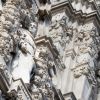 +1 +1
+1 +1Some Museums Scrambled to Remove Native American Items From Display. These Museums Didn’t Need to.
Under new repatriation rules, museums must gain consent from Native American tribes before displaying their cultural items. Some museums rushed to comply, but others, such as the Museum of Us and History Colorado, were prepared to meet the moment.
-
 +9 +1
+9 +1The Herculean task of digitizing Mexico’s vast Indigenous history
The National Institute of Indigenous Peoples faces a monumental challenge: preserving over a century of documentation before it deteriorates.
-
 +20 +1
+20 +1To save Cherokee language, a digital tool shares tales of Standing Rock and Big Snake with the next generation
Cherokees Writing the Keetoowah Way provides English translations of historic documents and lessons to help the next generation learn.
-
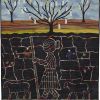 +18 +1
+18 +1Navajo Quilt Project co-founder wins national arts fellowship
Hudson is a co-founder of the Navajo Quilt Project, which donates fabric to elders all across the Navajo Nation.
-
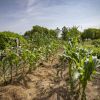 +2 +1
+2 +1Through gardens, these Native communities are cultivating a solution to climate change
How a small home garden can preserve traditional food-growing practices.
-
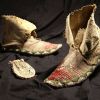 +2 +1
+2 +1Beaded moccasins confiscated from a Pennsylvania school 100 years ago return to Native tribe
Their journey home — accompanying the remains of two Sisseton and Spirit Lake boys repatriated to their tribes and families — brought not only another step toward reconciliation and healing for those involved but also inner peace and a sense of purpose to others along the way.
-
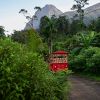 +43 +1
+43 +1For Many Native Americans, Fry Bread Is Tasty, Nostalgic—and Complicated
Indigenous chefs and authors discuss the beloved and thorny legacy of the food.
-
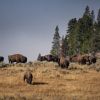 +21 +1
+21 +1U.S. to restore more bison herds on tribal lands by tapping Indigenous knowledge
U.S. Interior Secretary Deb Haaland says her agency will work to restore more large bison herds to Native American lands.
-
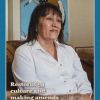 +17 +1
+17 +1Denver's first Native American affordable housing project aims to make amends for U.S. policy
The 187-unit apartment building with a symbolic circular design will include an Indian Health Services clinic and cultural programming.
-
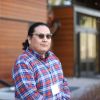 +4 +1
+4 +1A New Online Tool Will Let Native Americans Search for Relatives Who Attended Indian Boarding Schools
The digital archive repository and research tool will launch with nearly 50,000 records from a federal archive and, over time, integrate records from other Indian boarding school databases developed by private, nonprofit and governmental organizations.
-
 +15 +1
+15 +1We Need More Nuance When Talking About Repatriation
Patricia Marroquin Norby, the Met Museum’s curator of Native American Art, reflects on the lesser-discussed everyday challenges of repatriation work. "As connections with source communities grew, some colleagues shared their surprise at how repatriation attitudes regarding specific items can differ. Some tribes seek repatriation, while others favor a co-stewardship approach or prefer that works remain at the museum."
-
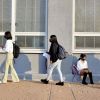 +10 +1
+10 +1Michigan to infuse social studies curriculum with lessons on Native American history and culture
Michigan is ensuring children learn the history of abuse at boarding schools that once tried to erase Indigenous culture. They’ll also learn about the 12 federally recognized tribes in Michigan, tribal governance, economies of early civilizations, and more.
-
 +10 +1
+10 +1How Native Americans Are Trying to Debug A.I.’s Biases
Data on Native communities are not at the levels needed for accuracy in A.I.-driven tools. A group is trying to solve that problem.
-
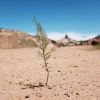 +4 +1
+4 +1How loss of historical lands makes Native Americans more vulnerable to climate change
Indigenous nations across the U.S. have lost nearly 99% of their historical land base over time. And it's not just the quantity of land that matters, but the quality too: Tribes were displaced to areas that are now more exposed to a wide variety of climate change risks.
-
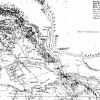 +20 +1
+20 +1Indigenous peoples, in Oregon and beyond, are decolonizing maps
Western maps, imbued with the history and power structures of colonialism, often erase Indigenous people and culture from their traditional lands. Now, Indigenous cartographers are countering that erasure by decolonizing maps, in Oregon and throughout the world.
-
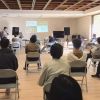 +3 +2
+3 +2Chinese dreams on Native American land: A tale of cannabis boom and bust
How the pandemic cannabis boom led to chaos on the Navajo Nation, pitting two minorities against each other.
-
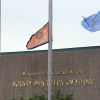 +5 +2
+5 +2Cherokee Supreme Court removes all references to 'blood' from tribal laws and constitution
The move draws sharp criticism from tribal legislators who say the court exceeded its authority by changing the constitution itself without a vote of the Cherokee people.
-
 +28 +1
+28 +1A Native health center asked for COVID-19 medical supplies. It got body bags instead.
"Are we going to keep getting body bags or are we going to get what we actually need?" a Seattle Indian Health Board official asked.
-
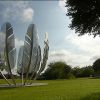 +15 +1
+15 +1173 years on, Irish donors thank Native Americans
The organisers of a fundraising campaign for Native Americans hit by the coronavirus have thanked Irish donors for their support.
-
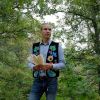 +3 +1
+3 +1'Decolonise and re-indigenise': The Ojibwe language warrior
Anton Treuer is part of a movement of indigenous Americans reclaiming the power and authority of their people.
Submit a link
Start a discussion




















